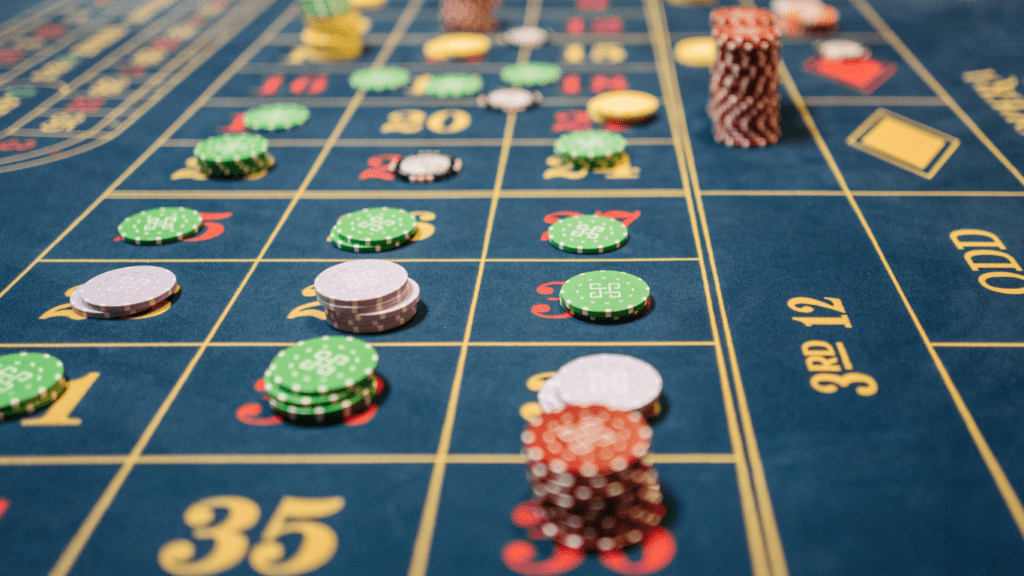Understanding High Stakes Gambling
High stakes gambling involves playing with large sums of money in environments known for their potential to yield substantial returns or dramatic losses. I find that it’s reserved mostly for those seasoned in risk assessment and strategy implementation.
Definition and Importance
In high stakes gambling, players wager significant amounts in games like:
- poker
- blackjack
- baccarat
at exclusive tables. While the financial commitments are greater, so are the potential rewards. It’s crucial for these players to employ sound strategies to manage their bankroll effectively and sustain prolonged gaming sessions.
Key Differences from Regular Gambling
High stakes gambling diverges from regular gambling primarily in the scale of bets and the player experience level required. Large sums and strategic acumen define high stakes scenarios, whereas casual gambling often involves smaller bets and less strategic depth. Players at high stakes tables typically engage in thorough game analysis and leverage advanced tactics to enhance their probability of winning.
Strategies to Win Big
Winning big in high stakes gambling requires more than luck; it’s about strategic planning and decision-making.
Bankroll Management
- Inadequate bankroll management leads to significant losses.
- Fixed budgets prevent overspending and force strategic betting.
- Allocating a percentage (e.g., 5%) of my bankroll for each bet allows consistent gameplay without depleting funds quickly.
- Regularly reviewing my financial status informs adjustments in betting strategies, maintaining control over spending and avoiding impulsive decisions.
Game Selection
Selecting the right game enhances my chances of winning. Informed choices arise from understanding my strengths and weaknesses across different casino games, such as poker or blackjack. Analyzing house edges helps identify games where my skills give me an advantage. Practicing these games outside high stakes environments sharpens my skills and boosts confidence before entering high roller tables.
Understanding Odds and Probability
Comprehending odds and probability is crucial to informed decision-making. Assessing the odds of each game and each hand or round allows strategic risk-taking. Familiarizing myself with probability patterns in games like baccarat or roulette guides my betting choices. Calculating potential outcomes helps me make decisions that increase my chances of substantial wins while minimizing potential losses.
Risks and How to Avoid Big Losses

High stakes gambling can lead to significant financial risk, requiring strategies to minimize potential losses.
Common Pitfalls
- Players often overlook the impact of chasing losses.
- This instinct can severely damage funds, leading to impulsive and risky decisions.
- Many fall prey to the illusion of patterns in games of chance, which can result in irrational bets based on perceived luck.
- Another common mistake is overconfidence, particularly after a series of wins, which may prompt larger, riskier bets.
Emotional Control and Discipline
Remaining calm and composed is crucial in high stakes gambling. Emotional decisions tend to cloud judgment, leading to quick and costly losses. Techniques such as deep breathing or stepback pauses improve focus and reduce impulsive reactions. By maintaining discipline, players can adhere to their established strategies and avoid costly deviations from their plan.
Setting Limits and Knowing When to Quit
Establishing clear spending caps improves financial oversight and reduces exposure to loss. Monitoring these limits ensures players stop when losses exceed acceptable thresholds. Equally important is the ability to recognize winning streaks. Quitting while ahead secures profits and prevents falling back into the cycle of potential loss.
Legal and Ethical Considerations
Navigating the legal and ethical landscape is crucial in high stakes gambling. Understanding regulations and practicing responsible gambling ensures an enjoyable and compliant experience.
Regulation and Compliance
Gambling laws differ globally, so it’s important to familiarize yourself with local regulations. In many jurisdictions, regulatory bodies oversee casino operations to ensure fairness and transparency. For instance, the UK Gambling Commission and Nevada Gaming Control Board set strict guidelines. Always choose licensed venues or platforms to avoid legal troubles and ensure fair play.
Responsible Gambling Practices
Responsible gambling involves setting personal boundaries and sticking to them. Establishing betting limits and never wagering more than you can afford to lose helps maintain control. Recognizing the signs of problem gambling, such as chasing losses or neglecting responsibilities, is equally important. Taking breaks and seeking support from organizations like Gamblers Anonymous can aid in maintaining healthy gambling habits.



 Lawerencer Cookanera – Founder & Chief Editor
As the driving force behind Casino Champs Fortune, Lawerencer Cookanera founded the platform with a mission to empower casino enthusiasts by providing them with well-researched, insightful content. Lawerencer brings years of experience in the casino industry, overseeing the editorial strategy to ensure high-quality, trustworthy content across a variety of topics. From uncovering the mechanics of progressive jackpots to delivering in-depth guides on how to play and win big, he ensures every piece of content aligns with the site’s vision. Lawerencer is dedicated to fostering a responsible gaming environment, offering readers practical advice and expert insights that elevate their casino experience.
Lawerencer Cookanera – Founder & Chief Editor
As the driving force behind Casino Champs Fortune, Lawerencer Cookanera founded the platform with a mission to empower casino enthusiasts by providing them with well-researched, insightful content. Lawerencer brings years of experience in the casino industry, overseeing the editorial strategy to ensure high-quality, trustworthy content across a variety of topics. From uncovering the mechanics of progressive jackpots to delivering in-depth guides on how to play and win big, he ensures every piece of content aligns with the site’s vision. Lawerencer is dedicated to fostering a responsible gaming environment, offering readers practical advice and expert insights that elevate their casino experience.
